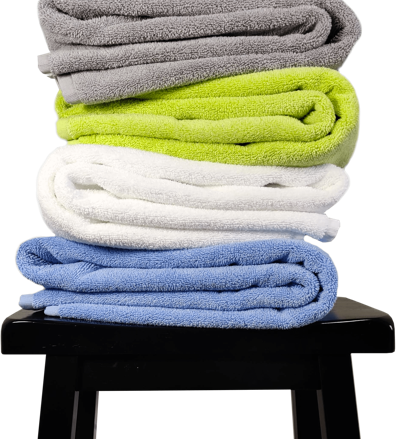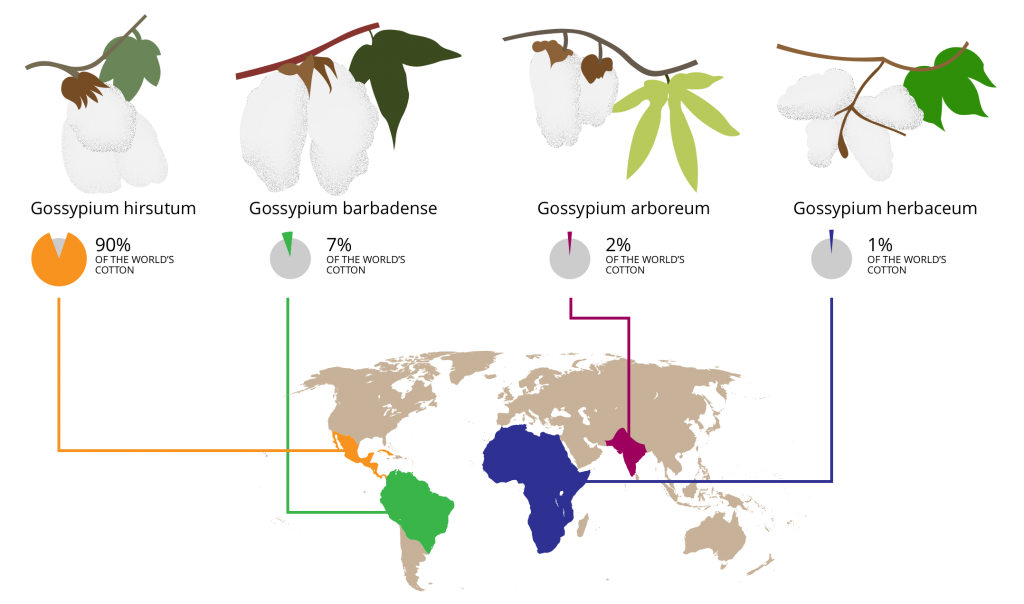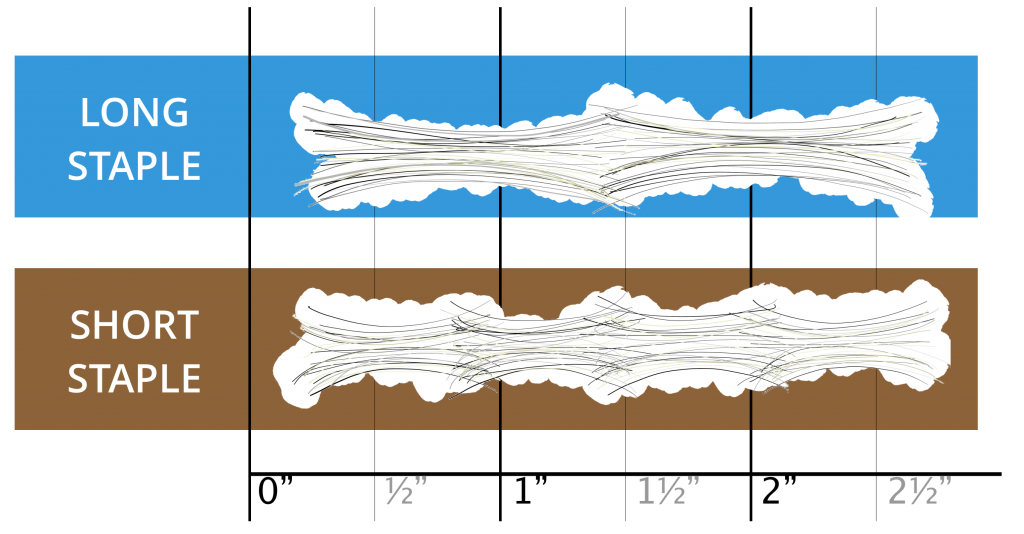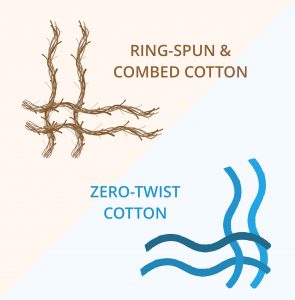What are zero twist towels? Explained in simple language.
Zero-twist towels use longer and stronger cotton fibers, allowing them to be looped through the towel base instead of twisted out from the towel.
This means that you feel smooth loops when drying off rather than many short stubby twists.
Zero-twist towels are perfect for sensitive skin as the towel’s long plush loops don’t agitate or irritate it.

The Origins
Zero-twist towels start with needing a higher quality premium cotton strand. Location does matter, and not all cotton is grown the same.
Cotton as we know it grows around the seeds of the Gossypium plant. There are over 50 species of the plant across the globe. For example, Gossypium hirsutum is the type of cotton that grows in the Southern United States while Gossypium australe is native to northwest Australia.
That’s right! Cotton isn’t the same everywhere. Here are the most common species:
- Gossypium hirsutum – 90%+ of the world’s cotton. Found mainly in Central America.
- Gossypium barbadense – 7% of the world’s cotton. Native to tropical South America and Hawaii but more commonly known as “Egyptian Cotton”. Surprisingly, this strand is not native to Egypt.
- Gossypium arboreum – 2% of the world’s cotton. Native to India and Pakistan.
- Gossypium herbaceum – 1% of the world’s cotton. Mainly found in Africa.

At Wove, we use cotton from the Gossypium arboreum strand, native to India, in our zero-twist towels. This strand is commonly known as tree cotton.
This strand of cotton is spun so that individual threads could maintain tensile strength at counts higher than any other variant of cotton. Compared to cotton grown elsewhere, including Egyptian Cotton and Pima Cotton, it’s significantly stronger and more durable.
The earliest evidence of cotton is tree cotton that dates back to 5500 BC on the current India/Pakistan border. It’s some of the oldest cotton around and one of the first cultivated by humans.
The Length
Ever have a towel that leaves a little bit of it behind all over your bathroom? Chances are your towel used a cheaper short staple cotton.
Shorter cotton strands shed and deteriorate. This is typical with that first, most commonly found cotton species mentioned above.
Wove bath towels only use long-staple cotton. Each cotton fiber is between 1.1 inches to 1.4 inches. Long staples directly translate to strength and durability. On the other hand, short staple cotton will shed and pile wash-after-wash.

Next up in our zero-twist journey takes us through the special manufacturing process.

The Weave
Up until now we’ve established that zero-twist towels need a stronger cotton fiber and a longer cotton strand. This last part is where the magic happens.

Many bath towels are made using twisted cotton. This is where cheaper cotton strands are twisted together to make bigger strands. While some towels labeled as “combed cotton” or “ringspun cotton” may feel soft up front, they also refer to this twisted method and will not last as long.
Look up close on a cheaper towel, you’ll see these tiny twists. The downside is that these twists act like tiny bristles, rubbing up and down against your body.
Wove towels are zero-twist bath towels — a recent innovation in towel crafting. Instead of twisting the cotton together, each strand is looped through the towel with a special manufacturing process.
You feel the smooth loop, not a hard bristle.
The Benefits
Loops, instead of twists, give the towel three substantial benefits: absorbency, softness, and durability.
Let’s break each one down.
Absorbency
How much water cotton absorbes is a factor of how much surface area of each cotton strand is exposed.
If those strands of cotton were twisted together, not all of each cotton strand would be exposed. Some of each strand would be touching the other strand.
With zero-twist towels, all of the cotton fiber is exposed. This means that more water can be absorbed by each strand.
Another benefit? Flip that scenario around. Because more surface area is exposed to air, the towels also dry faster.
That’s not marketing, that’s science.
Softness
This one is fairly easy. Would you rather have a pointy thing rub against your skin, or a smooth loop?
Zero-twist towels are inherently softer than regular towels as those smooth loops touch your skin rather than twisted strands. They’re great for more sensitive skin, or skin that doesn’t agree with the cold that much.
Durability
Because zero-twist towels use longer cotton fibers that are inherently stronger because of the cotton species used, they last longer. The towels don’t shed and therefore retain more of their cotton over time.
